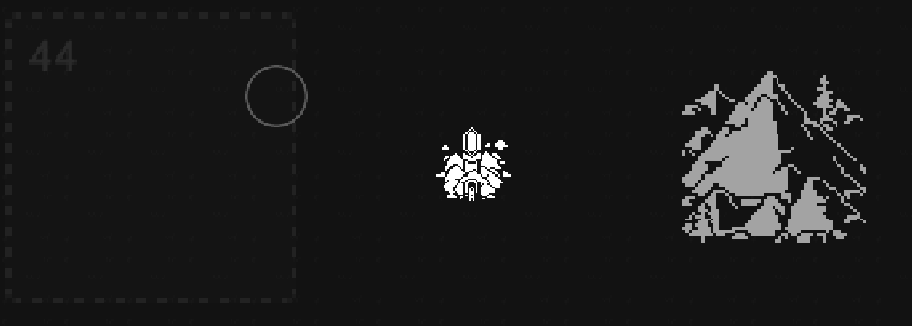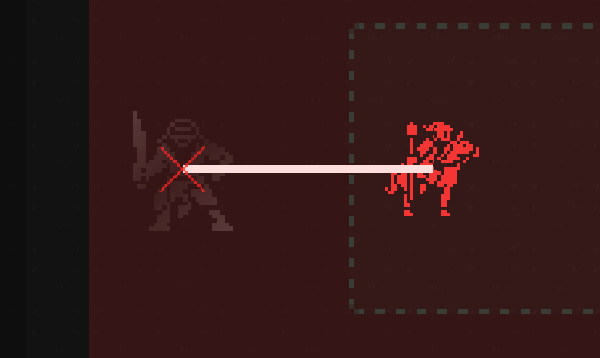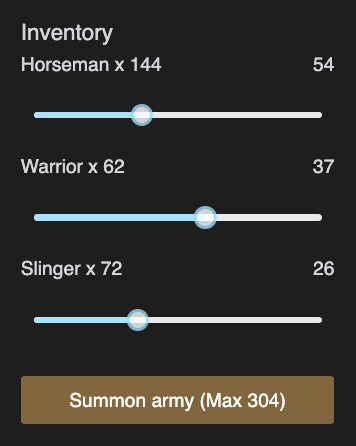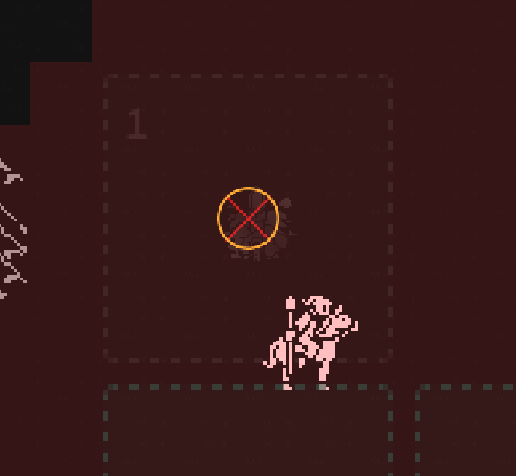Treaty: A Guide for Players

By Modeo
Introduction
Welcome to Treaty, where you take on the role of governor of your own nation in a fully-on-chain world. In this game, you must make strategic decisions on how to allocate resources, expand your territory, and choose which players to trust and collaborate with.
In Treaty, the world is divided into two layers. Your nation will be randomly spawned on the outer layer, and your ultimate goal is to expand inward and occupy the center tile of the inner layer. What sets Treaty apart from all other 4x games is the ability to be a real-life onchain diplomat, by drafting your own rules for how other players interact with you.
You can write up an embargo agreement to sanction a virtual nation that infringes upon your economic interests, or customize a deal to limit the development of your opponents. Much like how historical figures like Henry Kissinger and Talleyrand navigated the complex web of alliances, you can use our game's treaties to forge your own path to victory. We've provided some sample treaties for this version and will explain their applications along the way. Soon you'll be able to create your own treaties permissionlessly, leveraging on user-generated logic (UGL) to customize the rules and agreements to fit your unique strategy.
Game Mechanics
Tiles and Build Actions
There are three types of lands in Treaty: plains, crystal mines, and mountains. Mountains are impassable and don't have any resources initialized on them. Resources on crystal fields and plains are initialized to be lv0, which means that you can only harvest them after building mines/farms on top. Otherwise, you can only gather resources from them.

Each tile has defenders that represent its strength. To better protect your territory and increase your guard count capacity, you can choose to recover or upgrade your tiles. You can also enter into treaty agreements with other players to limit these actions. For example, you could propose in our pre-written Handshake Deal treaty in which another player cannot upgrade their border tile to lv2 for 2 days, and if they agree and sign the treaty, they will be bound by its terms.
Economy - Resources
Treaty world has two types of resources: gold and food. These resources have distinct utilities and form the foundation of the game's economy, which encourages various gaming behaviors at different stages.
Gold is primarily used to upgrade your capital, which is necessary for long-term success (upgrading capital unlocks more upgrades of other features). You can gather gold by defeating barbarians (high yields), gathering or harvesting from crystal fields (low yields), or receiving gold from other players or treaty contracts. For example, if Bob leads a large army and threatens to sack Alice's capital, which would result in a chaos period and halt Alice's production, Alice may choose to bribe Bob by sending gold and reaching a verbal peace agreement or signing a Non-Aggression Pact treaty (enforced by code).
However, it's important to not focus solely on acquiring gold. As a savvy economy planner, you should also strive for a diverse economy to ensure your nation's success. This means making an effort to gather enough food, as without it, you won't be able to develop a sufficient army to expand. You can get food by harvesting (high food yields), gathering, or defeating barbarians (low food yields). If you feel like your nation's economy is unbalanced, you can optionally use our OTC Trading treaty to exchange resources with another player. To do this, you'll first need to communicate privately with the other player in our global chat. Then, one player can put up an order on the OTC treaty, and the other player can trade with that order.
Economy - Crystal Mines & Farms
As mentioned earlier, you can harvest resources from crystal mines and farms. When the yields are insufficient to meet your demands, you'll need to upgrade your buildings. The yield growth follows a logarithmic curve to ensure that early players don't have too much of an advantage over latecomers.
Keep in mind that high-level resources that are too close to other players and too far from your capital are prone to attack. One way to protect your resources is to sign up for a Collective Defense Fund treaty. As a signer of this treaty, you'll pay a protection fee on a regular basis. In return, other signers of the treaty will not be able to attack you. The council of the Fund can then distribute the funds as needed for the defense of all signers. When deciding where to upgrade your resources, it's wise to carefully consider the locations and potential risks.
Economy - Barbarians & Gatherings
In Treaty, you can also encounter barbarians while expanding in the game world. These camps can be defeated for a chance to earn significant resources (especially gold), but be prepared for a tough battle as the barbarians are formidable opponents. Barbarians will recover after a certain cooldown period, so their tiles cannot be occupied.

Gathering is another way to acquire resources in the game. To gather, send your armies to a plain or a tile with a gold resource and click the "gather" button. The amount of resources you can gather is limited by the number of troops you have. Keep in mind that the reward for gathering is lower compared to other methods of resource acquisition, although it has zero cost (no build action needed).
Army & Battle
To help avoid unnecessary micromanagement and enhance the “strategy” part of the game, we allow up to two regiments of armies for each player initially. However, the fun of battling is not compromised. We provide three types of troops and apply a circular battle relationship between each troop type. For example, Warrior units are strong against Horseman, Horseman units are strong against Slingers, and Slinger units are strong against Warrior.
Along with troop types, our battle formula also takes into account the size of each army. Generally, the larger the size of an army, the stronger it is. However, this is not always the case. For example, 4000 infantries + 1000 horsemen might defeat a 5000 cavalry regiment (since infantry beats cavalry), but 4500 infantries + 500 horsemen might not be able to defeat it due to the smaller size of the horseman battalion. This means that you'll need to carefully consider the composition and size of your armies as you plan your strategies. Additionally, players can use the Handshake Deal Treaty to propose a "troopType ban" as a clause, which limits the production of a certain type of troop for a certain amount of time, giving them a strategic advantage in battle.

Troop Production & Expansion
As the governor of your nation, it is crucial to produce and organize a strong army in order to expand your territory and defend against enemy attacks. In Treaty, you can produce one troop type at a time in your capital. Players must carefully observe their opponents and choose their troop production wisely in order to harvest and form a formidable army.
Once the army is formed, you can then command and occupy empty lands by moving your army. Occupying new lands and battling other armies is as simple as right clicking on the red crossing of the target tile (you only need to click once). Keep in mind that you can only occupy lands that are connected to your existing lands and there's a limit to how many tiles you can own based on your capital level.

To expand your territory, you can additionally employ on-chain diplomacy to gain control over new lands and maintain security in your newly occupied territories. One way to ensure the stability of your borders and prevent accidental territorial disputes is by proposing in the handshake deal treaty to restrict which tiles the other player can occupy. Additionally, you can use other diplomatic tools such as the Non-aggression Pact treaty to maintain peace and security in your newly occupied territories.
If you're looking to expand your territories but don't have enough troops, the Mercenary League treaty is a great option. This treaty is inspired by the classic game Civilization, where players can enlist the armies of other players for a cost. Along with other treaties, the Mercenary League treaty demonstrates how Treaty allows players to create game mechanics beyond what game studios have traditionally offered. With user-generated-logic (UGL), players can not only replicate game mechanics seen in other games, but also create new and unique ones.
Sample Treaties
- Embargo Agreement: Allows players to impose economic sanctions on other nations, so they won’t be able to trade gold or resources with them.
- Handshake Deal: Players can propose flexible agreements such as limiting the upgrading/recovering of tiles for a certain period of time, and if the other player agrees and signs the treaty, they will be bound by its terms.
- Non-Aggression Pact Treaty: Allows players to sign a treaty of non-aggression, which enforces code to ensure peaceful relations between players.
- OTC Trading Treaty: Allows players to communicate privately and exchange resources with each other in a trustless way, through the use of smart contract orders.
- Collective Defense Fund Treaty: Allows players to pay a protection fee regularly and in return, signers cannot attack each other. The council of the fund can distribute the funds as they see fit.
- Alliance: Allows members to battle a target army belonging to a non-ally nation with all nearby ally armies.
- Mercenary League: Allows war council members to pay an agreed-upon fee to conscript armies of the league’s member states.
Timeframe & Conclusion
Thank you for reading about Treaty, our fully on-chain strategy game. We hope this article has given you a better understanding of what the game has to offer and why it is groundbreaking.
As you've learned, Treaty is not just a conventional 4x game. It’s a game that allows players to be the architects of their own diplomacy, where players can draft their own virtual constitutions and govern their interactions with other players in ways that have never been seen before.
We're excited for you to join us in this new world. The game will be launching in a few days, and the first phase of the game will end when the inner layer of the map is unlocked. This is when players will be able to compete for the center tile and claim victory.
We hope you'll join us in this exciting new journey. Thank you again for reading, and we look forward to seeing you in Treaty. Join our Discord to keep up with the newest!
A world without rules and controls, without borders or boundaries. A world where anything is possible. — The Matrix
